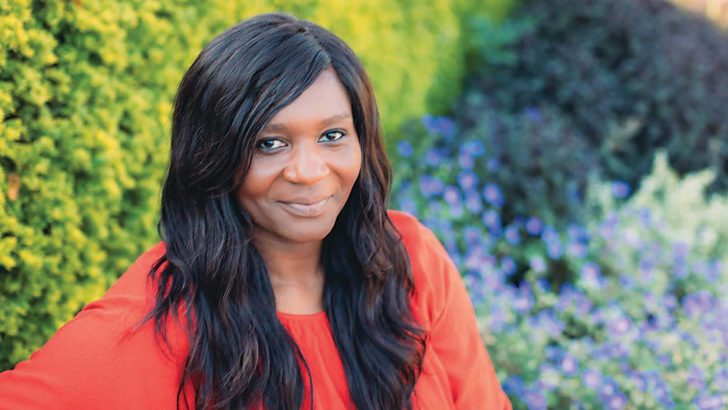God is Not a White Man: And other revelations
by Chine McDonald (London: Hodder & Stoughton, £16.99 / €19.70 )
Kevin Hargaden
Have you ever noticed the way tights are marketed?
The hosiery section of Marks and Spencer is an unlikely place to experience a revelation, but God can use any means to illuminate us. Dispatched to buy some things for my wife, I noticed that many of the packs of tights were described as being “nude”-coloured. They were a creamy white.
“That isn’t nude for my friends who are black,” I thought.
At that moment, the penny finally dropped on what it means to live in a society that perpetuates white supremacy. I cannot imagine going through life being perpetually confronted by the ways in which I don’t fit in. This is the norm for all Irish people who are not white.
Once you are sensitised to it in one place, you start to see it everywhere. Tights, then make-up, hair products, and other relatively trivial examples, through to life shaping norms including school curricula and government bias. Even the tone-deafness of the Church; the normative assumption of “whiteness” was never something I signed on for, but it is something that benefits me and handicaps my neighbour.
In God is Not a White Man, the British-Nigerian journalist Chine McDonald explores how white supremacy functions in today’s society and the Church. This is a work that is more memoir than manifesto, and much stronger for it.
The sceptic who needs to be convinced about the contemporary conversation on race will be convicted by McDonald’s own experiences and the sympathiser who would prefer to not think too deeply about the structural forces at work will be challenged by her keen social analysis.
White supremacy
Across seven chapters, McDonald considers the problem of white supremacy from a range of trajectories. In the first chapter she demonstrates how we have all imbibed the culturally prominent ideas of a “white Jesus” and how this harms our understanding of the Caith.
In the second chapter, she explores the sensitivities that arise in forming relationships across the race barrier, centring on her marriage to a white Englishman.
The third chapter is a fascinating reminder that “Africa is not a country”, which functions as an appeal to attending carefully to our cultural origins. The fourth chapter examines how racism and misogyny intersect. The role of education, both as a means of identity-formation for immigrant communities and as a site for exclusion is discussed in the fifth chapter.
The sixth chapter is a harrowing review of the violence that is so often directed to those whose skin is not white. The final chapter is a gripping call to address all these various issues within the Church.
McDonald is clear that “the call to dethrone white supremacy and patriarchy within the Church is not an issue of political correctness nor is it merely an appeal to ‘wokeness’”.
Rather, “it is a gospel issue. It is for Christ’s sake that we should remove the barriers that keep people from seeing God for who God is” (p. 101). This is a theologically critical point, which cuts through the easy distractions of whatever culture war may be imported from abroad. These issues are not relevant to Christians because they interest the broader society. They are essential to Christians because they concern the true worship of the true God.
McDonald writes as an Anglican in Britain. As such, there are times when the conversation will not apply directly in Ireland or in the Catholic church. But there is no point in the book where the conversation is irrelevant. This book warrants being widely read. And I look forward to the day we can read similar texts written from an Irish perspective as we grapple with increasingly evident racial tensions.
Kevin Hargaden works for the Jesuit Centre for Faith and Justice, Dublin, Ireland; khargaden@jcfj.ie


 Chine McDonald
Chine McDonald 